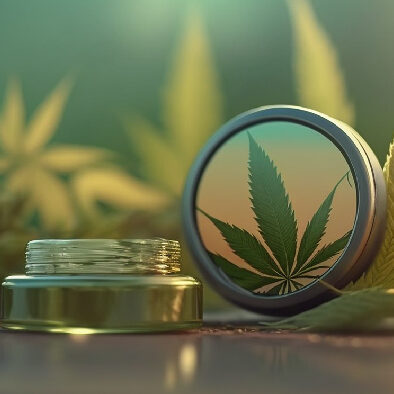CBD, or cannabidiol, has gained significant popularity in recent years due to its therapeutic advantages. Although it has been present for generations, its current prominence is unmatched. Derived from cannabis plants, CBD is non-psychoactive and lacks the intoxicating effects associated with THC. So, what exactly is CBD, and what potential benefits does it offer? Explore this natural remedy below.
Applications of CBD:
Ongoing research is revealing the diverse potential uses of this plant-derived compound. Some notable applications include:
Anxiety Relief:
A 2019 publication indicates that CBD consumption can reduce stress levels, providing a calming effect on the mind without the side effects associated with traditional stress-relieving medications.
Pain Management:
CBD’s analgesic properties, as suggested by a 2016 study, may offer relief to individuals dealing with chronic pain conditions such as arthritis or neuropathy.
Improved Sleep:
CBD may contribute to restful sleep by addressing underlying issues like anxiety and chronic pain that often lead to insomnia.
Epilepsy Symptom Alleviation:
The FDA has approved a CBD-based product called Epidiolex to treat rare forms of epilepsy, indicating that CBD-derived products may help reduce symptoms associated with epilepsy.
Anti-Inflammatory Effects:
CBD’s richness in anti-inflammatory properties makes it potentially effective against conditions related to inflammation, such as rheumatoid arthritis and inflammatory bowel disease.
CBD’s Interaction with the Body:
CBD interacts with the endocannabinoid system (ECS), a complex network of receptors and neurotransmitters that regulate various physiological functions. This interaction may result in the mentioned benefits upon consumption.
Possible Side Effects of CBD:
While generally beneficial, high doses of CBD may lead to mild side effects, including appetite changes, dizziness, and dry mouth. Responsible consumption is key to avoiding these issues.
Methods of CBD Use:
CBD products come in various forms to suit different preferences. Options include sublingual administration, gummies, topical creams for targeted relief, and disposable vape options for faster onset of effects.
CBD and Intoxication:
CBD lacks THC, ensuring that its consumption does not induce a high or alter mental states. Users can experience the potential benefits of hemp without concerns about intoxication.
CBD and Drug Tests:
Most standard drug tests focus on detecting THC rather than CBD. However, it’s essential to be cautious, as some CBD products, particularly full-spectrum ones, may contain trace amounts of THC that could trigger a positive response in a drug test.
Duration of CBD in the Body:
The time CBD stays in the body varies based on factors like dosage, frequency of use, and metabolism. Effects typically last two to six hours, but it may take a few days for it to completely flush out of the system.
Conclusion:
CBD is a versatile natural remedy with the potential to enhance various aspects of well-being. While not a cure-all, users have reported relief from issues such as sleep disorders, pain, and anxiety. It is crucial to consult with a healthcare professional before incorporating CBD into your wellness routine, especially if you have underlying health concerns or are taking medications.







0 Comments
This is exactly what i was looking for, thank you so much for these tutorials
It would be great to try this theme for my businesses
What a nice article. It keeps me reading more and more!